第89章 V(2)
To those who are not to engage in practice, the various pursuits of science hardly require to be commended. Only they must not be disappointed if they find many subjects treated in our courses as a medical class requires, rather than as a scientific class would expect, that is, with special limitations and constant reference to practical ends. Fortunately they are within easy reach of the highest scientific instruction. The business of a school like this is to make useful working physicians, and to succeed in this it is almost as important not to overcrowd the mind of the pupil with merely curious knowledge as it is to store it with useful information.
In this direction I have written my lecture, not to undervalue any form of scientific labor in its place, an unworthy thought from which I hope I need not defend myself,--but to discourage any undue inflation of the scholastic programme, which even now asks more of the student than the teacher is able to obtain from the great majority of those who present themselves for examination. I wish to take a hint in education from the Secretary of the Massachusetts Board of Agriculture, who regards the cultivation of too much land as a great defect in our New England farming. I hope that our Medical Institutions may never lay themselves open to the kind of accusation Mr. Lowe brings against the English Universities, when he says that their education is made up "of words that few understand and most will shortly forget; of arts that can never be used, if indeed they can even be learnt; of histories inapplicable to our times; of languages dead and even mouldy; of grammatical rules that never had living use and are only post mortem examinations; and of statements fagoted with utter disregard of their comparative value."
This general thought will be kept in view throughout my somewhat discursive address, which will begin with an imaginary clinical lesson from the lips of an historical personage, and close with the portrait from real life of one who, both as teacher and practitioner, was long loved and honored among us. If I somewhat overrun my hour, you must pardon me, for I can say with Pascal that I have not had the time to make my lecture shorter.
In the year 1647, that good man John Eliot, commonly called the Apostle Eliot, writing to Mr. Thomas Shepherd, the pious minister of Cambridge, referring to the great need of medical instruction for the Indians, used these words:
"I have thought in my heart that it were a singular good work, if the Lord would stirre up the hearts of some or other of his people in England to give some maintenance toward some Schoole or Collegiate exercise this way, wherein there should be Anatomies and other instructions that way, and where there might be some recompence given to any that should bring in any vegetable or other thing that is vertuous in the way of Physick.
"There is another reason which moves my thought and desires this way, namely that our young students in Physick may be trained up better then they yet bee, who have onely theoreticall knowledge, and are forced to fall to practise before ever they saw an Anatomy made, or duely trained up in making experiments, for we never had but one Anatomy in the countrey, which Mr. Giles Firman [Firmin] now in England, did make and read upon very well, but no more of that now."
Since the time of the Apostle Eliot the Lord has stirred up the hearts of our people to the building of many Schools and Colleges where medicine is taught in all its branches. Mr. Giles Firmin's "Anatomy " may be considered the first ancestor of a long line of skeletons which have been dangling and rattling in our lecture-rooms for more than a century.
Teaching in New England in 1647 was a grave but simple matter. A single person, combining in many cases, as in that of Mr. Giles Firmin, the offices of physician and preacher, taught what he knew to a few disciples whom he gathered about him. Of the making of that "Anatomy" on which my first predecessor in the branch I teach" did read very well" we can know nothing. The body of some poor wretch who had swung upon the gallows, was probably conveyed by night to some lonely dwelling at the outskirts of the village, and there by the light of flaring torches hastily dissected by hands that trembled over the unwonted task. And ever and anon the master turned to his book, as he laid bare the mysteries of the hidden organs; to his precious Vesalius, it might be, or his figures repeated in the multifarious volume of Ambroise Pare; to the Aldine octavo in which Fallopius recorded his fresh observations; or that giant folio of Spigelius just issued from the press of Amsterdam, in which lovely ladies display their viscera with a coquettish grace implying that it is rather a pleasure than otherwise to show the lace-like omentum, and hold up their appendices epiploicae as if they were saying "these are our jewels."
His teaching of medicine was no doubt chiefly clinical, and received with the same kind of faith as that which accepted his words from the pulpit. His notions of disease were based on what he had observed, seen always in the light of the traditional doctrines in which he was bred. His discourse savored of the weighty doctrines of Hippocrates, diluted by the subtle speculations of Galen, reinforced by the curious comments of the Arabian schoolmen as they were conveyed in the mellifluous language of Fernelius, blended, it may be, with something of the lofty mysticism of Van Helmont, and perhaps stealing a flavor of that earlier form of Homoeopathy which had lately come to light in Sir Kenelm Digby's "Discourse concerning the Cure of Wounds by the Sympathetic Powder."